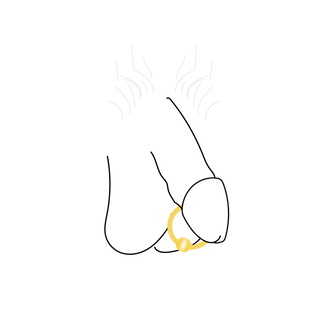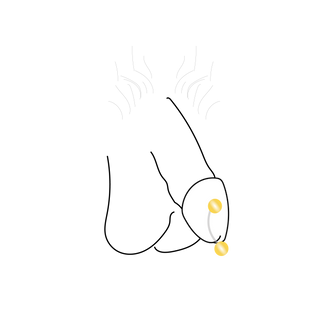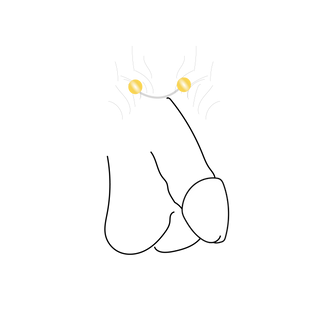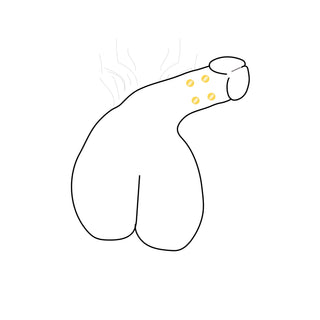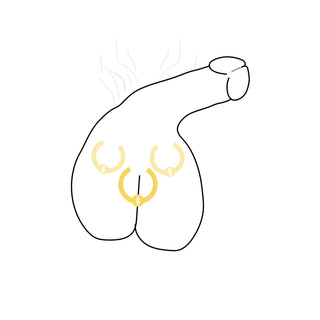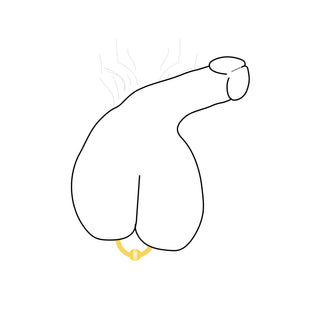Penis Piercings
Genital piercings have been performed for thousands of years, often as a right of passage into adulthood. Now, visual and sexual enhancement are additional motivations to receive these piercings.
It is normal to experience some swelling and bleeding initially with these piercings. We recommend abstaining from sexual activity until the initial tenderness has gone away, then using barrier protection (condoms, gloves, dental dams, etc.) until fully healed. It’s important to avoid baths, swimming, and any other standing water until the piercings are fully healed.
While some partners may enjoy the sensation of these piercing, others may prefer that jewelry is removed, at least for certain activities. It’s important to wait to temporarily remove jewelry until the piercing is fully healed, and to replace jewelry ASAP in healed piercings. These piercings can shrink or *close* VERY quickly.
**We do not perform deep shaft apadravya piercings or trans-scrotal piercings.
Advanced Pierings
Penis Piercing FAQs
**We do not perform deep shaft apadravya piercings or trans-scrotal piercings.
Does is hurt?
All piercings have a certain amount of discomfort, but almost all our clients express that their piercing was less intense than they expected.
Will the piercing bleed afterwards?
The genital area has higher blood flow than most other areas of the body, so some bleeding is expected. We will wrap your piercing in gauze before you leave to help manage this. PA, reverse PA, apadravya, and ampallang piercings may have more noticeable bleeding for the first couple of days or longer. You may need to change your gauze several times a day as the bleeding slows. A glove or condom may be useful as a barrier to contain the bleeding.
Be advised that taking pain relievers like advil/motrin/naproxen/aspirin and/or consuming alcohol can thin your blood and cause additional bleeding and/or bruising.
Do I need to avoid sex while it’s healing?
We do advise waiting for any type of sexual contact at least until the initial swelling and/or bleeding goes away, but you can engage whenever you are ready. It is important to use barrier protection like condoms, gloves, and dental dams during healing to keep your and/or your partner’s germs away from the piercing. Resuming activities too soon can result in extra swelling or bleeding, and could prolong your healing if you over do it. Extra scar tissue is another potential complication of engaging in sexual activity too soon or too vigorously.
Can I lose sensation because of the piercing?
A properly performed piercing will not go through any important nerves, blood vessels, or anything else. During the initial healing, the area around the piercing may be “extra” sensitive, but will return to normal or almost normal once healing is complete. It’s easy to get used to the initial “extra” sensation, and forget what “normal” felt like, but loss of sensation is almost impossible.
Do I need to shave?
That’s mostly your personal preference. We can perform most piercings around any body hair you may have. For pubic surface and scrotum piercings, it may be more comfortable if you at least trim hair around the piercing site so it won’t tangle with the jewelry. If you normally shave or wax, it may be easier for your routine to complete your hair removal just before the piercing, so you don’t have to worry about it for a little while.
What should I do to prepare for the piercing?
Eating a good meal with 2-3 hours of your appointment will help keep your blood sugar steady and help prevent feeling faint or lightheaded after the piercing. You need to avoid alcohol and medications like Advil, ibuprofen, naproxen, and aspirin for at least 12 hours before the piercing. Wear comfortable clothing that will make it easy to get to the piercing location. Supportive underwear can make bandaging more comfortable and stay in place easier. We do appreciate showering before your appointment if you’re coming straight from the gym or working out.

